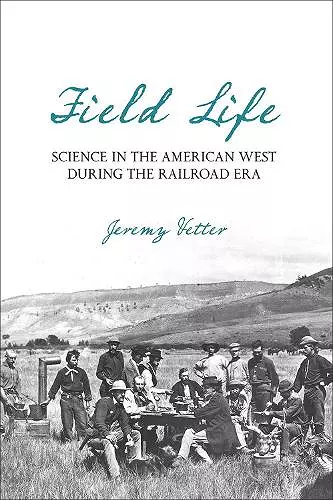Field Life
Science in the American West during the Railroad Era
Format:Hardback
Publisher:University of Pittsburgh Press
Published:25th Nov '16
Currently unavailable, and unfortunately no date known when it will be back

Field Life examines the practice of science in the field in the Great Plains and Rocky Mountains of the American West between the 1860s and the 1910s, when the railroad was the dominant form of long-distance transportation. Grounded in approaches from environmental history and the history of technology, it emphasizes the material basis of scientific fieldwork, joining together the human labor that produced knowledge with the natural world in which those practices were embedded.
Four distinct modes of field practice, which were shared by different field science disciplines, proliferated during this period—surveys, lay networks, quarries, and stations—and this book explores the dynamics that underpinned each of them. Using two diverse case studies to animate each mode of practice, as well as the making of the field as a place for science, Field Life combines textured analysis of specific examples of field science on the ground with wider discussion of the commonalities in the practices of a diverse array of field sciences, including the earth and physical sciences, the life and agricultural sciences, and the human sciences.
By situating science in its regional environmental context, Field Life analyzes the intersection between the cosmopolitan knowledge of science and the experiential knowledge of people living in the field. Examples of field science in the Plains and Rockies range widely: geological surveys and weather observing networks, quarries to uncover dinosaur fossils and archaeological remains, and branch agricultural experiment stations and mountain biological field stations.
In Field Life, Jeremy Vetter covers that significant period in the second half of the nineteenth century which saw both the rise of the railroad and the rise of modern American science. Surprisingly, no one has looked at the railroad and the West as an enviro-technical system, and it is a welcomed addition to such an analytical approach. Vetter also makes a broader methodological point for the need to advance regional approaches to the history of science. For Vetter, geography matters. He adds significantly to the spatial turn in the history of science by showing how the sciences practiced in the American West all have environmental histories to them.” —Michael Reidy, Montana State University
ISBN: 9780822944539
Dimensions: unknown
Weight: unknown
512 pages